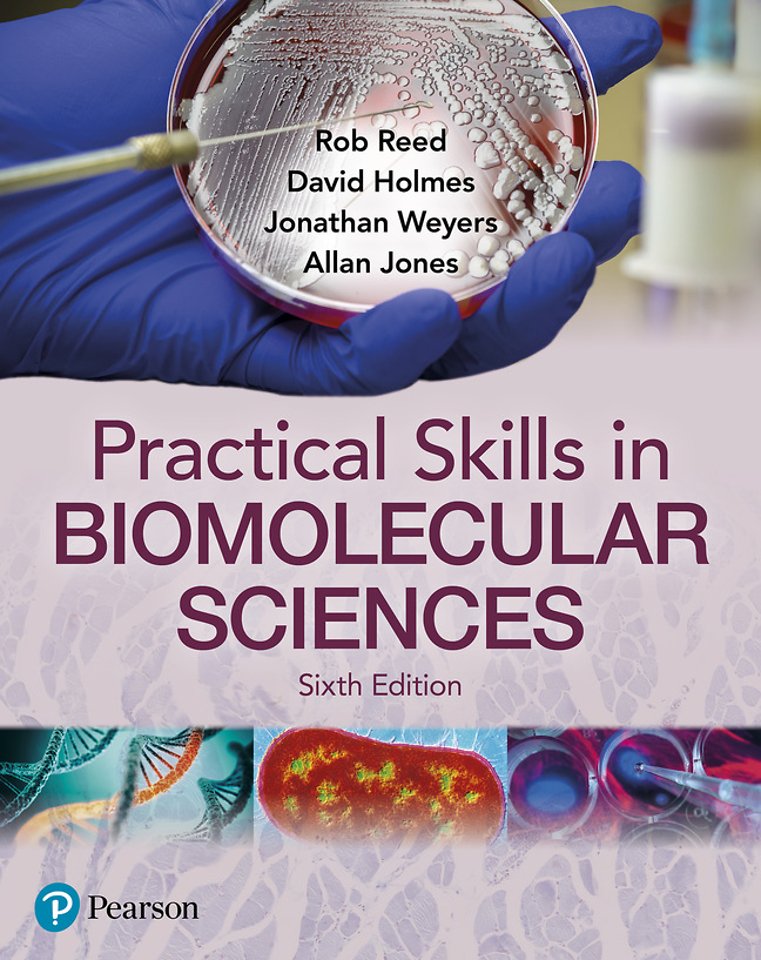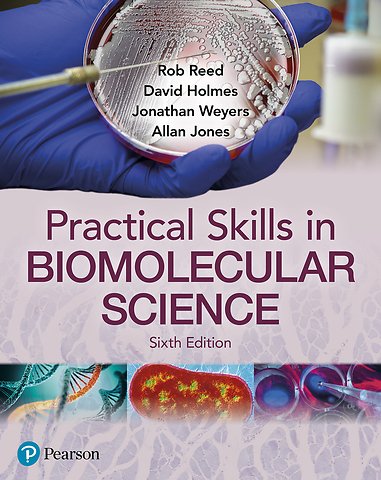Practical Skills in Biomolecular Science
Samenvatting
An essential companion for students across a range of disciplines, including biochemistry, biomedical sciences, microbiology and molecular biology throughout your entire degree programme, this sixth edition of Practical Skills in Biomolecular Sciences, has been updated and expanded to provide you with a complete and easy-to-read guide.
It's an all-in-one solution for the key practical skills needed for all cellular and molecular life sciences, including: comprehensive coverage of study and examination skills; fundamental laboratory methods; investigative and analytical techniques and analysis and presentation of data.
This new edition comes with increased coverage on laboratory skills, new chapters on working with bacteria, eukaryotic microbes and viruses, and on assaying biomolecules, as well as new sections on online learning in a post-COVID world.
In addition, 250 new and updated illustrations, tables, and tips - including 25 new 'how to' boxes - have been added, along with numerous end-of-chapter study exercises (with answers provided on the companion website) to support self-evaluation.
Specificaties
Inhoudsopgave
List of abbreviations
Study strategies
-Developing your skills
-Self-management
-Learning effectively
-Making the most of learning resources
-Locating and citing published information
-Evaluating information
-Working with others
-Mapping your personal development
Assessment skills
-Succeeding in assessments
-Scientific writing
-Writing essays
-Reporting practical and project work
-Tackling literature surveys and reviews
-Presenting written assignments
-Preparing a poster
-Giving a spoken presentation
-Revision strategies
-Improving your performance in exams
Fundamental laboratory techniques
-Preparing for practical work
-Working safely in the lab
-Basic laboratory skills
-Measuring and dispensing liquids
-Preparing solutions – principles and practice
-Measuring and maintaining pH
-Understanding microscopy
-Setting up and using a light microscope
The investigative approach
-Making measurements
-Understanding SI units and their use
-Designing experiments
-Understanding bioethics
-Recording data and images
-Tackling project work and placements
Working with microbes, cells and tissues
-Learning sterile technique
-Culturing cells and measuring growth
-Collecting and isolating microbes
-Identifying microbes
-Naming microbes and other organisms
-Working with bacteria
-Working with eukaryotic microbes: fungi and protists
-Working with viruses
-Working with animal and plant cells and tissues
-Homogenising and fractionating cells and tissues
Analytical techniques
-Understanding calibration and quantitative analysis
-Centrifugation techniques
-Measuring light
-Using advanced spectroscopy and spectrometry
-Carrying out basic spectroscopy and spectrometry
-Separating compounds using chromatography
-Detecting and analysing compounds after chromatography
-Methods of electrophoresis
-Advanced electrophoretic techniques
-Electroanalytical techniques
-Using immunological methods
-Using radioisotopes
-Analysing stable isotopes
Assaying biomolecules and studying metabolism
-Analysing biomolecules
-Assaying amino acids, peptides and proteins
-Assaying lipids
-Assaying carbohydrates
-Assaying nucleic acids and nucleotides
-Protein purification
-Studying enzymes
-Measuring membrane transport
-Quantifying photosynthesis and respiration
Genetics and molecular biology
-Studying Mendelian and population genetics
-Studying bacterial and phage genetics
-Understanding molecular genetics – fundamental principles
-Using the polymerase chain reaction in molecular genetics
-Genetic manipulation techniques
-Applying bioinformatics
Analysing and presenting data
-Manipulating and transforming raw data
-Analysing data with spreadsheets
-Summarising data in tables
-Illustrating data in graphs
-Solving numerical problems
-Using descriptive statistics
-Selecting and interpreting statistical tests
Appendix 1
Index









